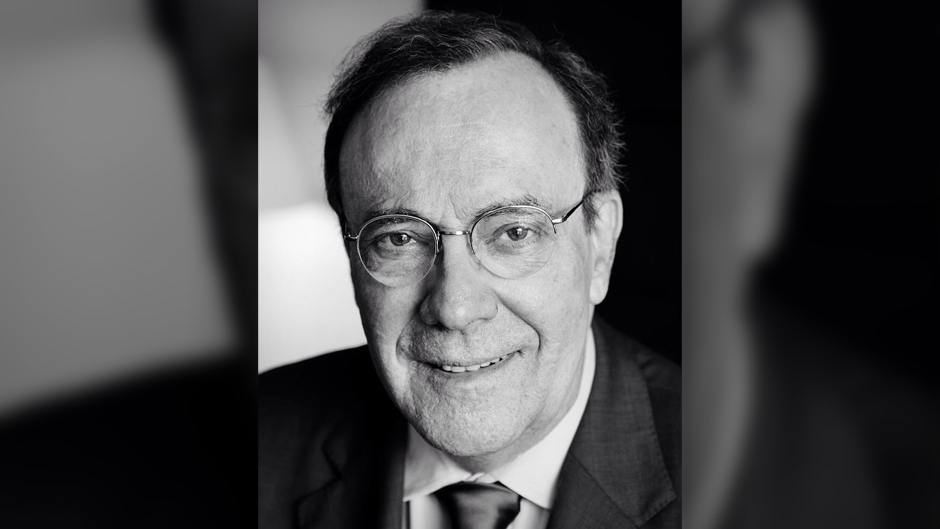Carlos Alberto Montaner was a Cuban-born political columnist, novelist, and essayist who was a great defender of human rights and a strong critic of Fidel Castro’s government and any other government that supported totalitarianism.
His work was featured in countless newspapers, including the Miami Herald, El Nuevo Herald, The Wall Street Journal, El País, ABC, El Comercio, El Nuevo Día, La Nación, and La Prensa.
He also was a regular commentator on CNN En Español and Mega TV. He passed away on June 30 in Madrid, Spain, from euthanasia, which is legal in Spain. He had been battling a condition similar to Parkinson’s disease.
Prior to his death, Montaner donated all his papers to the University of Miami Libraries’ Cuban Heritage Collection.
“My father devoted his life to political activism and his efforts to free Cuba, as well as his study and analysis of its history,” said his daughter, Gina Montaner. “This collection is his legacy, and it is central to the Cubans in exile. His contribution from the diaspora will help to better understand the recent and traumatic history of the Cubans both inside and outside the island.”
The Carlos Alberto Montaner Collection includes 75 boxes with letters, manuscripts, photos, agendas, newspaper clips, and magazines. The collection also holds most of his books, including “La Revolución que No Fue,” “Fidel Castro y la Revolución Cubana,” and “Latin Americans and the West: The Historical and Cultural Roots of Latin America.”
“We are honored that Carlos Alberto and his family chose to donate his papers to the Cuban Heritage Collection. His memory, legacy, and contributions to Cuban culture will live on through his manuscripts, correspondence, and photographs, available for students, scholars, and the community to learn from,” said Amanda Moreno, Esperanza Bravo de Varona Chair and director of the Cuban Heritage Collection.
Andy Gomez, former director of the University’s Institute for Cuban and Cuban American Studies, knew Montaner.
“Carlos Alberto Montaner was a writer, intellectual, and a friend,” said Gomez. “He always was able to look at the issues dealing with Cuba with an open mind and address both sides of the argument. The Cuban American community in South Florida and across the world has lost the voice of reason on Cuba.”
Montaner received a Master of Arts in Spanish from the University of Miami in 1966. In the subsequent years, he gave numerous lectures and participated in quite a few conferences at the University.
“He always wanted to donate his papers to an institution to which he had strong ties,” said Gina Montaner. “At the University of Miami, he took part in many lectures and classes. He understood the immense value that the Cuban Heritage Collection has for Cubans and scholars who study Cuba.”
The Montaner collection will be available to students, researchers, and the community.
Among his letters are some directed to leaders in the Cuban American community and world leaders to inform them about the plight of Cuba’s political prisoners and dissidents or dissident organizations. These included Sebastian Arcos Bergnes, Ricardo Bofill, and the Comité Cubano Pro Derechos Humanos. The collection also includes letters sent to him by Cuban dissidents and prominent intellectuals and politicians.
Montaner also kept meticulous files on important events on the island, such as the Caso Ochoa. Arnaldo Ochoa, a Cuban general, was executed by the government of Fidel Castro after being found guilty of a variety of crimes, including drug smuggling and treason.
Researchers also can view hundreds of Montaner’s columns—in both English and Spanish—as well as agendas of the multiple conferences at which he spoke. Photos and magazines, along with certificates and prizes that were given to him, also are available for perusal.
Like many Cuban exiles, Montaner expressed the wish to return to his home country once it was free.
“Although he could not return to his homeland, he left with the peace and pride of knowing that his body of work will outlive him, next to other important members of the Cuban diaspora at the Cuban Heritage Collection,” said Gina Montaner. “Without the history of the diaspora one cannot understand the history of Cuba.”
In an interview for the magazine Vida y Exito in May 2008, Montaner was asked what he would want engraved on his tombstone.
He answered: “I think I would repeat what Julián Marías (a Spanish intellectual) said on his tomb: ‘I did what I could.’ ”

